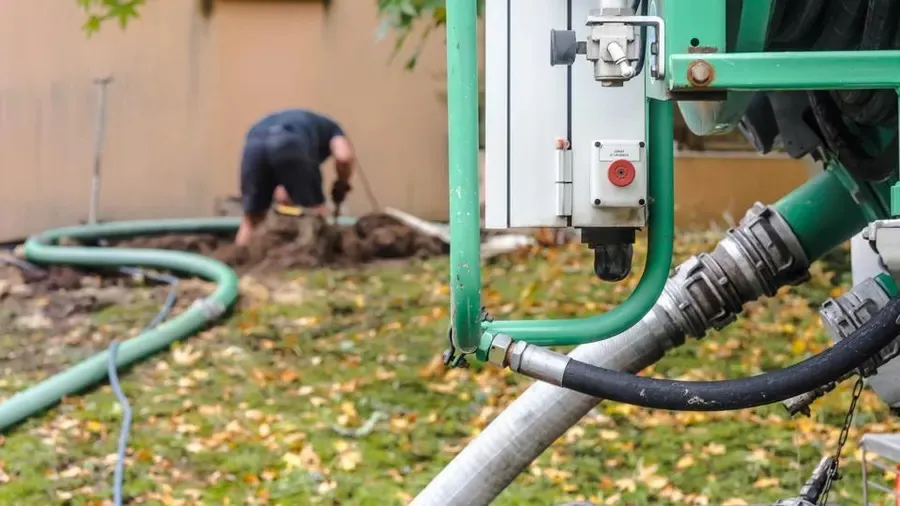
The Benefits of Routine Septic Tank Pumping: Beyond the Basics
Routine septic tank pumping is a fundamental aspect of responsible homeownership for those who rely on septic systems. While most homeowners are aware of the primary reason for pumping, which is to prevent septic system failures and backups, there are many more benefits to regular pumping that often go overlooked. In this article, we will explore the advantages of routine septic tank pumping beyond the basics, shedding light on how this essential maintenance task contributes to a healthier, more cost-effective, and environmentally responsible living.
The Primary Purpose of Septic Tank Pumping
Before we delve into the additional benefits of routine septic tank pumping, let’s briefly review its primary purpose. The septic tank is a critical component of a septic system, responsible for separating solids from liquids and initiating the wastewater treatment process. Over time, solid waste accumulates in the tank, forming a layer of sludge at the bottom and a layer of scum at the top. The relatively clear effluent remains in the middle and flows into the drain field.
Routine septic tank pumping primarily serves to:
- Prevent System Failure: Regular pumping ensures that the septic tank does not become overloaded with sludge and scum, preventing system failures, backups, and costly repairs.
- Extend System Lifespan: By removing accumulated solids, septic tank pumping reduces the wear and tear on your system, potentially saving you thousands of dollars in repair or replacement costs.
- Protect the Environment: A well-maintained septic tank ensures that treated effluent entering the drain field is relatively free of solids and pollutants, safeguarding the environment from contamination.
Now, let’s explore the additional benefits of routine septic tank pumping:
1. Improved Drain Field Health
The health of your septic tank and drain field are closely interconnected. Neglecting septic tank pumping can lead to the accumulation of solids that may flow into the drain field, clogging the pipes and soil pores. This can result in reduced drainage capacity, poor effluent distribution, and ultimately, drain field failure.
Routine septic tank pumping helps maintain the health of your drain field by ensuring that the effluent entering it is clear and free of solids. This reduces the risk of clogs, prolongs the life of the drain field, and preserves its ability to effectively treat wastewater.
2. Preventing Soil Contamination
A neglected septic tank can release poorly treated effluent into the soil in and around the drain field. This can lead to soil pollution, degrading its quality and making it less suitable for agriculture or plant growth. Contaminated soil can also pose a threat to groundwater sources.
By regularly pumping your septic tank, you minimize the risk of soil contamination, preserving the quality of your property’s soil and minimizing potential environmental damage.
3. Odor Control and Aesthetic Improvement
Neglected septic tanks can release foul odors and sewage backups on your property, creating an unpleasant and unsightly environment. These issues not only affect your quality of life but can also harm the aesthetics of your property and reduce its value.
Routine septic tank pumping eliminates the risk of foul odors and sewage backups, creating a more pleasant outdoor environment and preserving property values. It also contributes to the overall aesthetics of your property, making it more attractive and inviting.
4. Enhanced System Efficiency
A well-maintained septic system operates more efficiently. Regular septic tank pumping ensures that the tank functions at its best, allowing for proper separation of solids and the retention of scum and sludge. This, in turn, leads to a more efficient treatment process and fewer issues with clogs or backups.
Enhanced system efficiency also translates to lower energy consumption, as the system does not have to work as hard to treat wastewater. This can result in reduced electricity and maintenance costs over time.
5. Reduced Long-Term Costs
While septic tank pumping is an expense, it is a modest one compared to the potential costs of system failure or extensive repairs. Routine maintenance, including pumping, is a cost-effective way to keep your septic system running smoothly and avoid more significant financial burdens down the road.
By investing in routine septic tank pumping, you protect your property, prevent environmental damage, and minimize long-term costs associated with septic system maintenance and repair.
6. Compliance with Regulations
Many local and state regulations govern septic system maintenance and pumping schedules. Failure to comply with these regulations can result in fines and legal issues. Keeping up with septic tank pumping ensures that you remain in compliance with local regulations and avoid potential legal troubles.
By adhering to these regulations, you also contribute to the responsible management of wastewater in your community and help protect the environment.
7. Healthier Living Environment
A well-maintained septic system promotes a healthier living environment for you and your family. Properly treated wastewater poses fewer health risks, reduces exposure to harmful pathogens and contaminants, and minimizes the potential for waterborne diseases.
Additionally, the absence of foul odors and sewage backups enhances the overall comfort and well-being of your home, creating a more enjoyable living space.
Conclusion
Routine septic tank pumping is a fundamental aspect of responsible homeownership that goes beyond preventing system failures and backups. It offers a multitude of benefits, including improved drain field health, prevention of soil contamination, odor control, enhanced system efficiency, reduced long-term costs, compliance with regulations, and a healthier living environment.
By prioritizing routine septic tank pumping, you ensure the longevity and efficiency of your septic system while contributing to the preservation of the environment and the well-being of your family. It’s an investment in the health and longevity of your home and the protection of the environment that should not be overlooked.